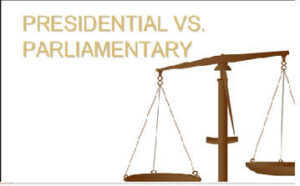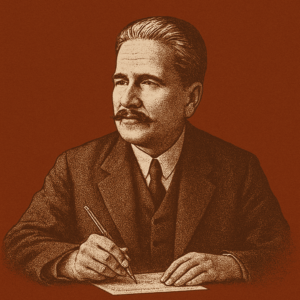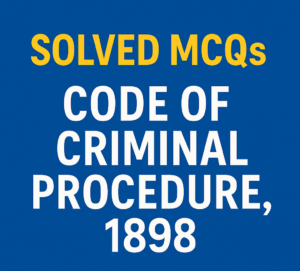David Emile Durkheim (15 April 1858 – 15 November 1917) was a French sociologist. He formally established the academic discipline of sociology and is commonly cited as one of the principal architects of modern social science, along with Max Weber.
Much of Durkheim’s work was concerned with how societies can maintain their integrity and coherence in modernity, an era in which traditional social and religious ties are much less universal, and in which new social institutions have come into being. Durkheim’s conception of the scientific study of society laid the groundwork for modern sociology, and he used such scientific tools as statistics, surveys, and historical observation in his analysis of suicides in Catholic and Protestant groups.
Durkheim’s anomie theory describes the effects of the social division of labor developing in early industrialism and the rising suicide rate.
Durkheim theorized that it was through the culture shared by a group, community, or society that a sense of social connection—what he called solidarity—emerged between and among people and that worked to bind them together into a collective.
One of Durkheim’s major contributions was to help define and establish the field of sociology as an academic discipline. Durkheim distinguished sociology from philosophy, psychology, economics, and other social science disciplines by arguing that society was an entity of its own.
Functionalism is a system of thinking based on the ideas of Emile Durkheim that looks at society from a large-scale perspective. It examines the necessary structures that make up a society and how each part helps to keep the society stable. According to functionalism, society is heading toward equilibrium.
Durkheim’s Social Solidarity
Durkheim’s argument is that there are two types of social solidarity – how society holds together and what ties the individual to the society. One of these is mechanical solidarity, which characterizes earlier or traditional societies, where the division of labor is relatively limited.
The form of social solidarity in modern societies, with a highly developed division of labor, is called organic solidarity. Durkheim argues that the division of labor itself creates organic solidarity, because of the mutual needs of individuals in modern society.
In both types of societies, individuals for the most part “interact in accordance with their obligations to others and to society as a whole. In doing so, each person also receives some recognition of his or her own rights and contributions within the collectivity. Social morality in this sense is ‘strictly necessary for solidarity between people to occur; without morality, societies cannot exist.
In examining the roots of social solidarity, Durkheim regards the examination of systems of law as an important means of understanding morality. He regards “systems of law” as the “externalization of the inner core of social solidarity, it is predicted that as the inner core undergoes qualitative changes from ‘mechanical’ to ‘organic’ solidarity, there should be a manifest shift in the ratio of types of legal systems … as a proportion of the total legal corpus.”
Understanding the Mechanical Solidarity
Early societies tended to be small scale, localized in villages or rural areas, with a limited division of labor or only a simple division of labor by age and sex. In this type of society, people are very similar to each other, and Durkheim titles this chapter “Mechanical solidarity through likeness.” In this type of society, each person carries out essentially similar types of tasks, so people share the type of work they carry out. These societies are characterized by likeness, in which the members of the society share the same values, based on common tasks and common life situations and experiences.
In these early societies, Durkheim argues that legal codes or the system of law tend to be repressive law or penal laws. If there is a crime in this society, then this crime stands as an offense to all, because it is an offense to the common morality, the shared system of values that exists. Most people feel the offense, and regardless of how serious it is, severe punishment is likely to be meted out for it.
Anything that offends the common conscience threatens the solidarity – the very existence of society. An offense left unpunished weakens to that degree the social unity. Punishment, therefore, serves the important function of restoring and reconstituting social unity.
For Durkheim, the collective consciousness reaches all parts of society, has a distinct reality and is independent of individual conditions, and is passed on from one generation to the next. In this, it differs from particular or individual consciences.
We must not say that an action shocks the common conscience because it is criminal, but rather that it is criminal because it shocks the common conscience. We do not reprove it because it is a crime, but it is a crime because we reprove it.
They must re-enforce themselves by mutual assurances that they are always agreed. The only means for this is action in common. In short, since it is the common conscience that is attacked, it must be that which resists, and accordingly, the resistance must be collective.
(Thus, the analysis of punishment confirms our definition of crime. We began by establishing inductively that crime consisted essentially of an act contrary to strong and defined states of the common conscience. We have just seen that all the qualities of punishment ultimately derive from the nature of the crime. That is because the rules that it sanctions express the most essential social likeness.)
Thus we see what type of solidarity penal law symbolizes. … not only are all the members of the group individually attracted to one another because they resemble one another, but also because they are joined to what is the condition of existence of this collective type. … They will hold to it durably and for prosperity, because, without it, a great part of their psychic lives would function poorly.
This shows how the collective consciousness works in societies without a highly developed division of labor. The primary function of punishment, therefore, is to protect and reaffirm the collective conscience in the face of acts that question its sanctity. In order to carry this out, such societies develop forms of repressive penal law.
While the common values in these societies can change over time, this process of change is generally quite slow, so these values are generally appropriate for the historical period in question. At other times, the laws may be inappropriate and might be maintained only through force. However, Durkheim generally considers this to be an exceptional circumstance and one that is overcome.
Organic solidarity
With the development of the division of labor, the collective consciousness begins to decline. Each individual begins to have a separate set of tasks in which he or she is engaged. These different situations lead to quite a different set of experiences for each individual. This set of experiences tends to lead toward “a ‘personal consciousness,’ with an emphasis on individual distinctiveness.”
The common situation which created the common collective consciousness is disturbed, and individuals no longer have common experiences but have a great variety of different settings, each leading towards its own consciousness.
As the development of the division of labor erodes the collective consciousness, it also creates a new form of solidarity. This new form is organic solidarity and is characterized by the dependence of individuals on each other within the division of labor, and by a certain form of cooperation. There is a functional interdependence in the division of labor. … Organic solidarity … presupposes not identity but the difference between individuals in their beliefs and actions. The growth of organic solidarity and the expansion of the division of labor are hence associated with increasing individualism.
Thus the nature of the moral consensus changes. Commonly shared values still persist because without them there would be no society, but they become generalized, as they are not rooted in the totality of commonly shared daily experiences. Instead of specifying the details of an action, common values tend to be a more general underpinning for social practices. It is in this sense that the division of labor can be seen as a moral phenomenon.”
Thus Durkheim argues that there are individual, and probably group, differences, at the same time as there is a new form of social solidarity.
Cause of organic solidarity
. Durkheim is critical of the economists who regard the development of the division of labor as a result of the coming together of people with different abilities and specialties. While Durkheim did not make reference to Adam Smith, he also may have had in mind Smith’s view that people have a natural propensity to truck, barter, and trade. Finally, he was critical of the economists’ point of view that merely examined the technical conditions for the division of labor, and the increased efficiency associated with it, without consideration of the broader societal conditions necessary to maintain it. Thus Durkheim did not consider the division of labor as a natural condition.
Durkheim considers the development of the division of labor to be associated with the increasing contact among people. There is a greater density of contact so that people are led to specializing. The division of labor emerges in different ways in different societies, leading to somewhat different forms of solidarity. However, it is these developments that create the division of labor, and “Civilization develops because it cannot fail to develop.
Adams and Sydie (p. 94) state that Durkheim regarded this as an increase in moral or dynamic density. This moral relationship can only produce its effect if the real distance between individuals has diminished in some way. Durkheim refers to this as an increasing density. Moral density cannot grow unless material density grows at the same time. The two are inseparable though. Three ways in which this happens are:
i. Concentration of people. People begin to concentrate together. Agriculture may begin this, and it continues with the growth of cities as well.
ii. Cities. Formation of cities and their development. “Cities always result from the need of individuals to put themselves in very intimate contact with others. They are so many points where the social mass is contracted more strongly than elsewhere. They can multiply and extend only if the moral density is raised.”
📍 English Language Educator | Blogger & Content Strategist | 7+ Years in Educational Blogging
Nosheen Bashir is a dedicated English teacher and experienced blogger with over seven years of expertise in content creation and educational writing. Passionate about language, literature, and effective communication, she combines her teaching experience with blogging skills to create insightful, research-backed content that helps learners and educators alike.
🔹 Expertise & Achievements:
✔ English Language Education: A skilled educator with years of experience in teaching English grammar, literature, and communication skills to students of varying levels.
✔ Educational Blogging: Running a successful blog for 7+ years, delivering well-structured, engaging content on language learning, writing techniques, and academic success.
✔ SEO & Content Strategy: Specializes in creating high-ranking, authoritative articles that follow Google’s EEAT principles, ensuring content that is both informative and search-friendly.
✔ Student-Centric Approach: Committed to making English easier, engaging, and accessible, helping readers and students improve their language proficiency.
🚀 With a passion for teaching and writing, Nosheen Bashir is dedicated to crafting educational content that empowers students, teachers, and language enthusiasts worldwide.










